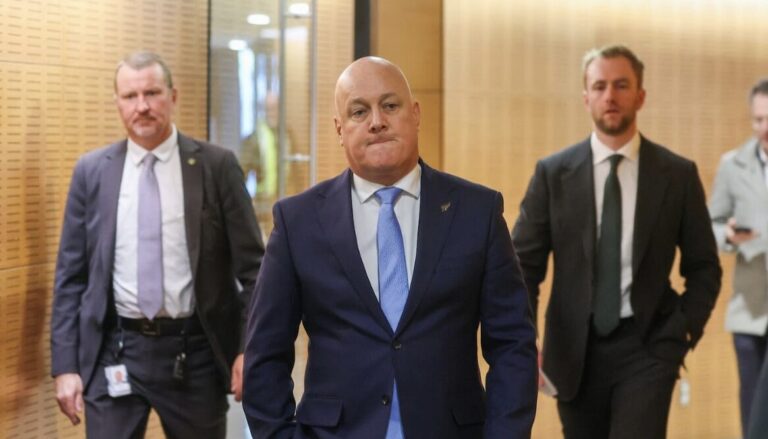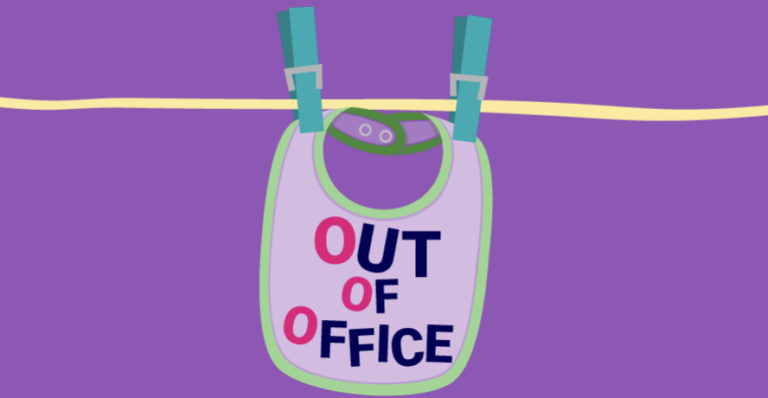Erica Stanford’s blatant power grab

Recently Minister of Education Erica Stanford announced her intention to restructure the New Zealand Teachers Council, replacing the majority of its members with ministerial appointees.
Minister’s plans for Teaching Council a ‘power grab’, union says
Currently elected members have the majority on the council representation and so the council is representative of teachers’ interests. Clearly teachers having influence is anathema to Stanford, for reasons I will discuss later.
“All professional standard-setting functions for teaching education would be moved from the council to the Ministry of Education, and the Government would urgently “reconstitute” the council, reversing the current model of seven elected members and six ministerial appointments to seven members appointed by the minister and six elected by teachers by removing the requirement for a teacher educator-elected representative, a change Stanford said would come into effect this month.”
It gets worse:
“Next year, the council would be reduced from 13 members to between seven to nine members (with three elected by teachers) to “ensure stronger governance and professional capability”, Stanford said.”
Stronger governance? In other words, making sure teachers don’t have a voice and have to jump hoops. As the teacher unions say, this is no more than a blatant power grab.
I don’t see other professional associations, e.g., doctors and lawyers, having the same issues with government takeover of their organisation.
As PPTA President Chris Abercrombie says, the changes are an attack on the professionalism and independence of teachers.
“Our professional body – the people that register us, that look after our code, our standards, our professionalism – is being overthrown by the government in a blatant power grab.”
Stanford justifies this move on what she claims are failures in preservice teacher education and problems with beginning teachers lack of preparation. Having been out of the system for many years I’m not in a position to comment on the current situation. However in my experience, problems with beginning teachers were not new, and to sheet the blame home to the Teachers Council is merely looking for a scapegoat.
Many of us old fogeys, who received our teacher education at dedicated teachers’ colleges, would say that the deterioration started when the teachers colleges were swallowed up by universities, thus turning preservice education into an academic course with a bit of teaching practice on the side, whereas back in my time at Hamilton Teachers College, it was the other way around.
But I believe there’s more to Stanford’s power grab than is apparent. There has been a widespread teacher uproar over curriculum and teaching changes, from the ‘knowledge rich curriculum’, to the very prescriptive ‘science of learning’ to the equally prescriptive one sized fits all of structured reading and structured mathematics.
Stanford will be very aware, as were her National Party predecessors, Anne Tolley and Hekia Parata, that for her agenda to be implemented, teachers need to be muzzled and prevented from speaking out.
Now she has control of the Teachers Council, she has the levers to ensure rules are established to put teachers in their place. Democracy? Freedom of speech? Maybe the Free Speech Union could get involved…
Another way Stanford could be planning to use her powers is set out in this article:
Erica’s Play for Teacher Performance Pay — The Real Teaching Council Takeover
“URGENT INTEL — Erica Stanford is making a play for teacher performance-related pay — and we know this.
We said it before about the Curriculum Shitshow.
We proved it with the Learning First intel (thanks to Bevan Holloway for his OIA that proved it on 3rd November).
Trust us again.
This is the next stage.
While the media noise distracts everyone with test scores, teacher shortages, and “dire training” headlines, the real story is unfolding quietly under the cover of bureaucratic reform: the Teaching Council Takeover.”
Teacher performance pay has been a dream of the right for a long time. For a myriad of reasons, too long to discuss in this article, this is impracticable – it has been tried and failed in many overseas countries. It doesn’t work, not that I will be able to convince some people who don’t actually know much about teaching, as I’m sure will be reflected in the comments!
“Right now, the Teaching Council is our firewall.
It keeps professional standards in the hands of educators, unions, iwi, and the profession itself.
Erica wants that firewall gone.
Once the standards move inside the Ministry of Education, the Minister decides what “effective teaching” looks like — and that is the gateway to performance-related pay.
Erica says this is about “lifting quality” and fixing “teacher misconduct” and “dire training.” That’s the decoy — the dead cat thrown on the table to keep everyone talking about the wrong thing.
Behind that noise sits the real intent: a centralised, data-driven system where teacher pay is linked to measurable “impact,” not professional trust.”
How do we know this? Because it is promoted in plain sight by the New Zealand Initiative – yes there’s their agenda yet again.
“The government could set a new, higher pay scale for new teachers meeting a higher standard… or create promotion tiers for exceptional teachers.
Every other service sector manages to link pay to performance… Doing it in education would allow the government to attract and retain superb teachers at less than enormous cost.”
And not to be left out, here’s Dr Michael Johnston:
‘Dr Michael Johnston, another from the New Zealand Initiative, has set the philosophical groundwork:
“An overly sociocultural philosophy of teaching… insufficient focus on the science of learning… poor preparation of teachers…”
“At the heart of these deficiencies lie the Standards for the Teaching Profession.”’
As with everything Erica Stanford says or does, we need to look beneath her sleight of hand and see what is really going on.
“If this passes, “effectiveness” will be defined by data.
Progress and pay will be measured by metrics.
Teachers working with trauma-affected, neurodiverse, or high-needs ākonga — where success looks different — will be penalised for the very work that matters most”.
And that is why performance pay doesn’t work – I know Erica thinks all brains work the same but that is arrant rubbish.
Erica hasn’t finished with the big sticks to clobber teachers though. Brie Elliot has produced another excellent video where she explains the way Stanford is using teacher professional development as another stick.
Here’s link to her Facebook video, for those of you with a Facebook account. Watch it if you can.
Brie has provided this synopsis:
“The Ministry of Education has quietly rolled out the Network of Expertise (NEX) programme, offering funding to subject associations to support teachers in implementing the refreshed national curriculum for Years 9–13. The programme focuses on delivering a knowledge-rich curriculum, updating assessment and qualifications, helping teachers plan etc.
While this is presented as support, it comes with strict conditions, including a mandatory non-critique clause and a 7-day deadline for compliance. Associations are expected to follow Ministry guidance fully, leaving little room for discussion or public questioning.
What’s especially concerning is that this rollout was done quietly, behind closed doors, without consultation or transparency. Teachers and associations are being pressured to implement these changes in silence. This directly affects teachers’ professional independence, their ability to advocate for students, and ultimately the quality of education in classrooms for our kids”.
A comment on this video sums up the situation.
“Its extraordinarily authoritarian.
What worries me, is in a democracy, we teach guidance, we teach critical thinking, and we teach consent,
When the education leadership is extreme totalitarian authority, the teachers are forced to comply, the teaching the students receive is unbendable, unresponsive, invalidating, unapplied, uncritical, unconsenting.
It’s just not fit for purpose in modern world.”
It takes a lot to make Anne Tolley and Hekia Parata look like good ministers of education, however Stanford is doing that easily.
The scary part is waiting to see what is coming next.







Very well said Ernie.
Crap! “Teachers working with trauma-affected, neurodiverse, or high-needs ākonga — where success looks different — will be penalised for the very work that matters most”. I have a child that fits just that description (diagnosed and medicated) and I never seen anything like that. What he got was bullying, beatdowns, public humiliations led by the teacher etc etc. Every school claimed they have no bullying at their school despite the obvious. School reputation is far more important than child wellbeing. The only exception I know of is Hagley.
He settled in 180 degrees Alternative Education for a few months before that outfit decided there’s more money in the youth justice market and promptly closed over Christmas without even letting them say goodbye to their friends.
His next Alt Ed provider, Tumanako, gave him zero credits for a year’s work. They neither informed him nor myself! I complained to the teaching council who said I have to complain to his employer, Cashmere High School, (Though I had complained to the pedagogical leader for Alt Ed who promptly ignored it. Twice). They promised to put it before the board. However, having spoken to his Alt Ed Manager they decided to solve the situation between themselves to their own personal satisfaction. They never informed me and it multiple emails months later to even find out.
So I took it back to the teaching council. Between complaints I became aware of two other students of Tumako who had the same experience. One, with the help of other professionals, regained her stolen credits. Both were prepared to go witness. The Council found that the laws had changed and therefore it was rejected. I complained to the Ombudsman only to find that Alternative education doesn’t come under their purview.
So any child whose face doesn’t fit can be thrown into the gaping jaws of a charitable industrial complex, where justice is not only arbitrary and self-serving, it doesn’t even have government oversight. The only oversight they have is the teaching council, where teachers sit in judgement on teachers, and mostly find in their own favour. It doesn’t surprise me that a former principal is cool with that. However, there are a lot of parents whose children have been bullied and persecuted who totally disagree. I’m just one.
Allan – you have an obvious obsession with Ms Stanford. She’s not that bad looking so its understandable.
Maybe in your eyes Mark, have you been drinking?
She does seem to be living rent free in his head
‘Dire training’ from someone with no training.
‘Teacher misconduct’ from someone who is sliming around and bringing in massive changes though every back door she can find. Nothing she does is done the proper way, how’s that for misconduct.
Performance pay is a myth. No-one knows how well a teacher has performed in the short-term. Exams may give some insight but still aren’t a true indication. Can I go back after 20 years and say, ‘Hey those Yr.3s of mine have done really well, most of them. Where’s my performance pay?’
Learning is a very cumulative process. Unfortunately, the Spin-ister shows most days, that she hasn’t accumulated a lot of it herself, she’s still a pretender.
She’s knocking herself out with all this change she’s wanting to implement, and the best part is, most of it will be out the window, the moment she is no longer in govt.
In that photo Cluxon looks as if he’s just realised he’s got a tiger by the tail. The penny has just dropped!
Joy you are an example that change was well overdue.
And you sir, are a right wing nutjob that couldn’t teach a fish to swim.
My ability to tutor is beyond dispute.
Spoken by someone who wouldn’t last 5 minutes in front of 4 Engineering ii.
Really!!!
Re: Teachers Performance Pay
I worked in a school where one HOD always picked the best classes for himself, top streamed (back in the day) year 9s and 10s, best examination classes.
Naturally, his ‘results’ were excellent – and now well worthy of performance pay.
The rest of us did as best we could.
Performance pay is just as shallow as all the other Stanford ‘reforms.’
Ditto. I was given a class of – essentially criminals in the making – because apparently I liked working with them. And I was good at it apparently. I told the guy that “good” aside, every Thursday night I lay awake wondering what the hell I was going to do with them last spell on Friday. Meanwhile he was cruising along with potential scholarship students.
One of my guys eventually murdered his dad. I should have got danger money rather than performance pay.